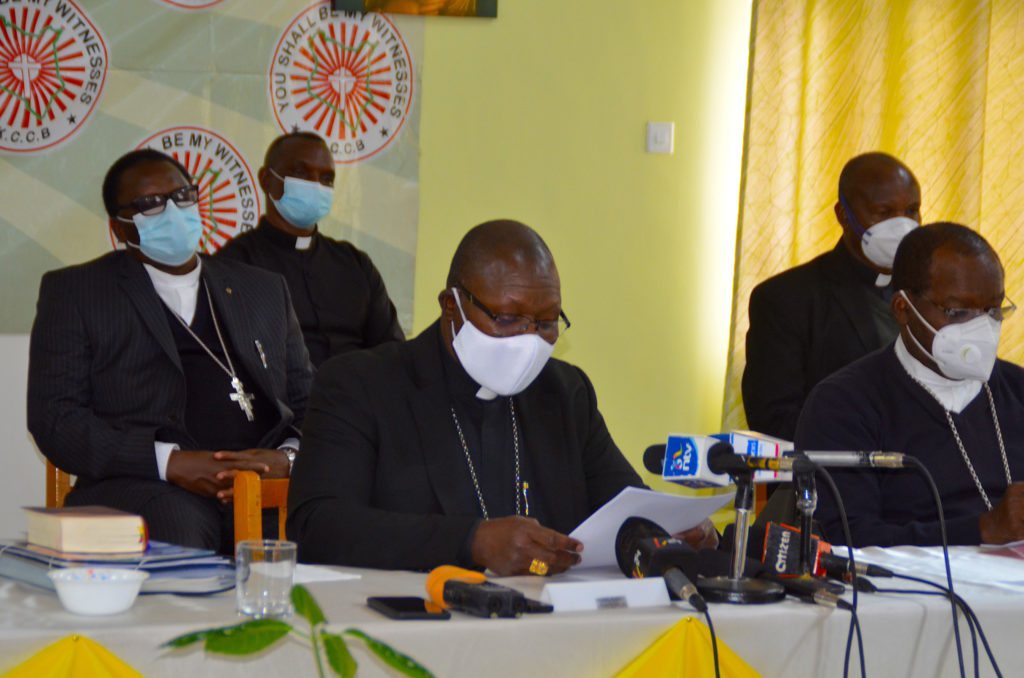KENYA: Bishops Call for Review of Building Bridges Initiative Report, Arguing What Kenyans Want is Better Government

Press release for the Bishops after Plenary
By Rose Achiego,
The Building Bridges Initiative (BBI) which is a product of the long process of dialogue following the 2018 handshake between President Uhuru Kenyatta and Hon. Raila Odinga is supposed to bring forth national reconciliation and unity considering that for time, every general election takes Kenya on the path of political, tribal, religious and economic turmoil.
Kenyan bishops gathering at the National Marian Shrine in Subukia, Nakuru, during their November Plenary Assembly have called for the review of Building Bridges Initiative (BBI) report issued to President Uhuru Kenyatta and opposition leader Raila Odinga on October 26, 2020 at Bomas of Kenya, Nairobi.
Addressing the media on Thursday November 13, the Chairman of The Kenya Conference of Catholic Bishops (KCCB) Most Rev. Philip Anyolo said the document gives the president power to appoint the Prime Minister and two deputies though the expanded executive was supposed to reflect the face of Kenya and tame the “winner-takes-it-all” structure.
“To give the President the power to appoint the Prime Minister and the two deputies risks consolidating more power around the president, thereby creating an imperial presidency. This amendment could be creating the same problem it set out to solve. It is very important to stick to the principle of separation of powers for it is the backbone of democracy,” Archbishop Anyolo said.
Archbishop Anyolo also pointed out the possibility of a bloated House of Parliament saying that the expansion of the Senate to 94 members and the National Assembly to 363 will be a huge burden to tax payers who are already reeling with a huge wage bill supporting the present legislators.
“There is no reason why we should have such a large number of legislators. We do not want more government, but better government,” he said.
He added that, the proposal to have political parties appoint members to regulatory agency mandated to oversee elections, the Independent Electoral and Boundaries Commission (IEBC) is dangerous since it will politicize the organization hence compromising its independence.
“This proposal will turn IEBC into a political outfit with partisan interests. The question will arise on how fair the elections will be.” Archbishop Anyolo said.
The Bishops also observed that, the proposed formation of a Kenya Police Council headed by the Cabinet Secretary of Interior with four other members, to replace the Independent Policing Oversight Authority (IPOA) is a move that is likely to make Kenya a police state and compromise the independence of the police from the Executive.
The Bishops hence encouraged member of the public to read and discussion the report adding that it is necessary that Kenyans get a chance to interact with it, discuss it in different fora and give their views.
The Bishops pleaded to Kenyans to seek the greater good of the nation, unity and work towards true reconciliation.
“We call upon all of us leaders, and especially political leaders, to see a greater picture of a nation that is united, resilient and reconciled; where all of us are our brother’s and sister’s keepers. This is the time to shun divisive politics, seek the paths of dialogue and sharing our values,” they said.
The bishops welcomed BBI as an opportunity for all Kenyans to engage constructively in discussing issues which affect the country and cause perennial conflict and division. However, the report presented to them on 26th, October 2020 did not reflect some of their hopes.
“Our hope was that the BBI report would address the 4 key concerns that we raised in the November 2017 plenary in Nakuru, namely: reconciliation and national healing; restoration of values; democratic governance and institutions of governance; recovery and reconstruction of the economy and services; the lack of structured and redemptive reforms as was pointed out in Agenda 4 Item of the 2008 Kofi Annan led Kenya National Dialogue and Reconciliation Process.”


